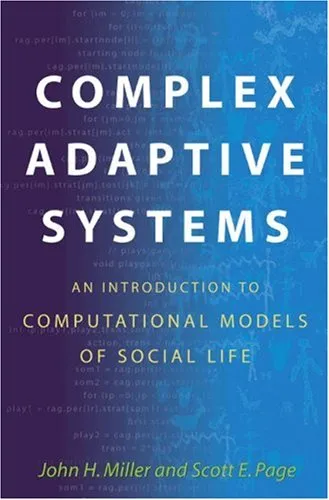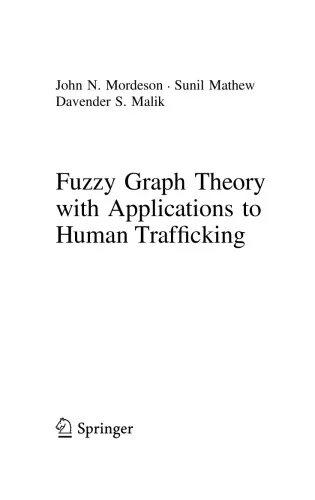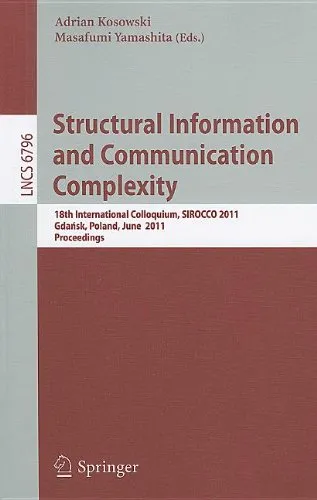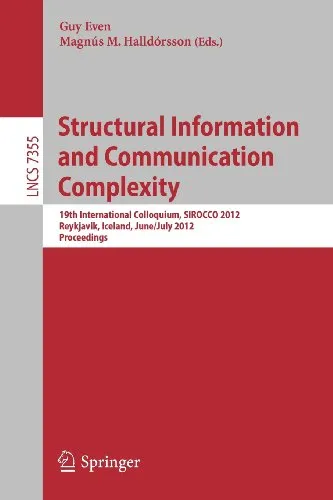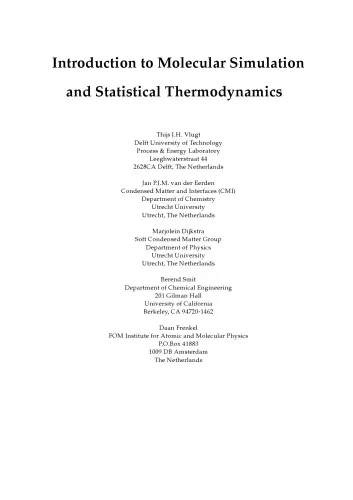Self-organizing Coalitions for Managing Complexity: Agent-based Simulation of Evolutionary Game Theory Models using Dynamic Social Networks for Interdisciplinary Applications
4.0
Reviews from our users

You Can Ask your questions from this book's AI after Login
Each download or ask from book AI costs 2 points. To earn more free points, please visit the Points Guide Page and complete some valuable actions.Related Refrences:
Introduction
Modern societies face increasing levels of complexity, whether in economics, social dynamics, or environmental systems. To address such challenges, multidisciplinary approaches that integrate advanced modeling techniques and theoretical frameworks have become indispensable. Self-organizing Coalitions for Managing Complexity: Agent-based Simulation of Evolutionary Game Theory Models using Dynamic Social Networks for Interdisciplinary Applications represents an innovative effort to analyze and manage these complexities through a combination of evolutionary game theory, agent-based simulations, and dynamic social networks. This book bridges the gap between theory and practical insights, making it suitable for researchers, data scientists, and practitioners across a wide range of domains.
This book delves into the principles of self-organization and cooperative behavior by studying how coalitions form, evolve, and adapt within complex systems. Using agent-based modeling as a key tool, it demonstrates dynamic interactions among agents in diverse social and environmental scenarios. Readers will find that this is not just a theoretical guide but also a practical resource for building computational models to better understand emergent phenomena in real-world systems.
Detailed Summary
At its core, this book explores how self-organizing behavior emerges in complex systems. It starts with an introduction to game theory fundamentals, focusing on evolutionary concepts and their relevance to modeling real-world interactions. By incorporating agent-based simulations, the book offers a unique vantage point for understanding individual-level decision-making processes and their aggregate impacts on societal-level dynamics.
The second part of the book focuses on dynamic social networks. It examines how network topology influences cooperation, competition, and coalition formation. By combining these principles with agent-based modeling and game theory, readers can see how the fluid nature of relationships within networks impacts the overall system.
Practical applications are emphasized throughout the book, with case studies illustrating the use of these models in solving interdisciplinary problems. Applications range from understanding economic markets and resource allocation to tackling issues in sociology, political science, and environmental studies. Moreover, the comparison between theoretical predictions and observed data ensures that readers can bridge the often-overlooked gap between simulation and reality.
Key Takeaways
- Understand the foundational concepts of evolutionary game theory and their role in modeling cooperative and competitive interactions.
- Learn how agent-based simulations offer a powerful approach to exploring emergent phenomena in complex systems.
- Gain insights into how dynamic social networks shape coalition formation and system-wide behaviors.
- Explore interdisciplinary applications, ranging from resource management to social and economic modeling.
- Develop practical skills in designing and implementing computational models to study complexity.
Famous Quotes from the Book
"In the face of complexity, it is self-organization, not rigid control, that offers the best chance for adaptation and survival in changing environments."
"Coalitions are not simply the sum of their parts; they are dynamic ecosystems where individual choices converge to produce emergent order."
"Agent-based models do not just mimic reality; they serve as laboratories for understanding the intricate interplay of actors and structures in complex systems."
Why This Book Matters
The importance of understanding and managing complexity cannot be overstated in today's world. Whether we look at global environmental challenges, evolving social dynamics, or intricate market systems, the need for robust analytical tools and frameworks is immediate. This book stands out as a practical and theoretical guide for anyone dealing with emergent phenomena in complex systems.
By integrating evolutionary game theory with cutting-edge simulation methods and the study of social networks, this work provides readers with powerful tools to approach real-world problems. For researchers, it offers a rigorous foundation for further exploration. For practitioners, it provides hands-on techniques that can be applied to diverse domains. As a result, this book is highly relevant to professionals in economics, sociology, political science, computational modeling, and many other fields.
In essence, Self-organizing Coalitions for Managing Complexity emphasizes that adaptation and cooperation are fundamental to navigating complexity. By focusing on how coalitions self-organize and evolve, this book brings critical insights into managing challenges that lie at the heart of our interconnected world.
Free Direct Download
You Can Download this book after Login
Accessing books through legal platforms and public libraries not only supports the rights of authors and publishers but also contributes to the sustainability of reading culture. Before downloading, please take a moment to consider these options.
Find this book on other platforms:
WorldCat helps you find books in libraries worldwide.
See ratings, reviews, and discussions on Goodreads.
Find and buy rare or used books on AbeBooks.
1261
بازدید4.0
امتیاز0
نظر98%
رضایتReviews:
4.0
Based on 0 users review
Questions & Answers
Ask questions about this book or help others by answering
No questions yet. Be the first to ask!


